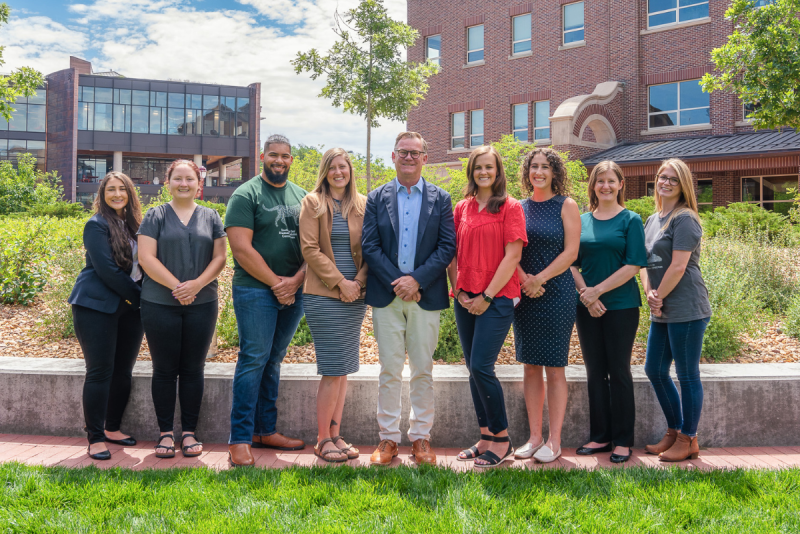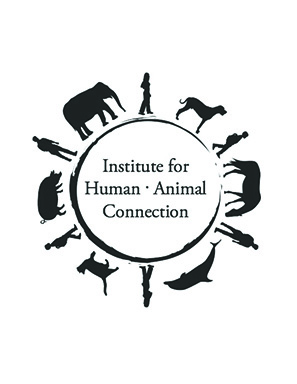Research Highlights from 2022
Leading the Way in Human-Animal Interaction Research

The IHAC Research team in a group photo outside on the DU campus, July 2022.
Research at the Institute for Human-Animal Connection (IHAC) uses innovative approaches to answer seminal questions in the human-animal-environment interactions field. From animal welfare to nature-based therapeutic interventions, and a lot in between, IHAC’s unique research informs practitioners, communities, and the field at large. This year our incredible staff accomplished this work with the support of 33 graduate research assistants and 9 MSW interns from the University of Denver’s Graduate School of Social Work!
We welcomed three new research staff members this year, Research Fellow Alexandra Cardona and Research Associates Liana Moss and Celeste Morales.
We produced reports and publications, including 4 peer-reviewed publications and 3 other publications, with 8 additional manuscripts submitted or under review. These publications included:
- A study in partnership with Best Friends Animal Society examining the impacts of the first year of the COVID-19 pandemic (2020) on the overall five-year trends (2016-2020) in intake and outcomes in U.S. animal shelters.
- A qualitative study documenting the barriers to finding and maintaining pet-inclusive affordable housing in Houston, TX, USA.
- A qualitative study documenting Green Chimneys staff members’ perspectives on how nature-based interventions facilitate treatment goals for youth in a residential and day treatment setting.
- The first study to document animal control and humane law enforcement officers’ perspectives on community engagement.
- A qualitative study exploring the cultural significance of free-roaming dogs to the Three Affiliated Tribes on the Fort Berthold reservation in North Dakota .
- A scoping review that found human-dog interactions consistently improve some indications of human stress levels and do not negatively affect the stress levels of dogs.
- A scoping review that identified the impacts of pet ownership on components of frailty status for adults aged 50 and older, including health, meaning, and purpose.
- A commentary paper that operationalizes nine of the most common terms used in the human-animal interactions field, including: assistance animal, companion animal, educational/school support animal, emotional support animal, facility animal, service animal, skilled companion animal, therapy animal, and visiting/visitation animal.
- A chapter on diversity, equity, inclusion, and belonging in human-animal interactions for the first edition of The Handbook on Human-Animal Interactions, Interventions, and Anthrozoology.
- A chapter on establishing the evidence base for human-animal interactions in the first edition of The Handbook on Human-Animal Interactions, Interventions, and Anthrozoology.
Our team presented these findings at many in-person and virtual conferences, including:
- My Dog Is My Home (March 2022)
- Humane Society of the United States Animal Care Expo (April 2022)
- Humane Canada’s Summit for Animals (May 2022)
- International Society of Anthrozoology Conference (July 2022)
- Best Friends Animal Society National Conference (July 2022)
- International Association for Human-Animal Interaction Organizations (September 2022)
- Society for Companion Animal Studies (September 2022)
- Colorado Public Health Association’s Public Health in the Rockies (September 2022)
- Canadian Animal Law Conference (September 2022)
- Access to Veterinary Care Conference (October 2022)
- Council on Social Work Education (November 2022)
- Gerontological Society of America (November 2022)
- University of Guelph Equine Industry Symposium (November 2022)
2022 was an incredible year for the research team! Special thanks to our collaborators, community partners, and funders who make this work possible. Our research team is excited and looking forward to the great things planned for 2023!

